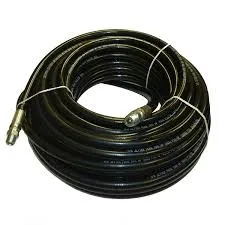Optimizing Air Conditioning Pipe Efficiency for Enhanced Cooling Performance
Understanding Air Conditioning Pipes Function, Types, and Maintenance
Air conditioning systems are essential for maintaining comfortable indoor environments, especially in regions with extreme temperatures. While many homeowners focus on the main unit when considering their air conditioning systems, the importance of air conditioning pipes, or AC pipes, should not be overlooked. These pipes play a critical role in the efficient function of an air conditioning system, conveying refrigerant and ensuring optimal performance. In this article, we will explore the functions, types, and maintenance practices related to AC pipes.
The Function of AC Pipes
Air conditioning systems typically use a refrigerant, a fluid that transitions between liquid and gas states to absorb heat from the indoor air and release it outside. AC pipes, specifically the suction line and liquid line, are responsible for carrying this refrigerant throughout the system.
1. Suction Line This larger pipe transports low-pressure refrigerant gas from the evaporator coil back to the compressor. The evaporator coil absorbs heat from the indoor air, causing the refrigerant to evaporate and turn into gas. The suction line must be well insulated to prevent heat exchange that could affect system efficiency.
2. Liquid Line In contrast, the liquid line carries high-pressure liquid refrigerant from the condenser, located outside the home, to the expansion valve, which then controls the flow into the evaporator coil. Proper insulation and secure connections are crucial in this line to maintain the refrigerant in its liquid state until it reaches the evaporator.
Maintaining the integrity of these pipes is vital for an air conditioning unit to function efficiently. Leaks or damage in the lines can lead to refrigerant loss, poor cooling performance, and even system failure.
Types of AC Pipes
Several materials are commonly used to manufacture air conditioning pipes, each with its unique advantages
1. Copper Copper pipes are widely used due to their excellent thermal conductivity, durability, and resistance to corrosion. They can handle high pressure and are commonly employed in both residential and commercial systems. However, they can be more expensive than other materials.
aircon pipe

2. Aluminum Aluminum piping is lighter than copper and offers good resistance to corrosion. It is easier to install and generally more affordable. Nevertheless, it is less durable than copper and may not be ideal for all applications.
3. PVC and PEX While not as common for transport of refrigerant in traditional AC systems, these plastics are sometimes used for drainage lines or in specific setups. They are lightweight and resistant to corrosion but may not withstand the high pressures present in refrigerant lines.
Maintenance of AC Pipes
Regular maintenance of air conditioning pipes is crucial for ensuring efficiency and prolonging the lifespan of the entire system. Here are some maintenance tips
1. Regular Inspections Homeowners should inspect their AC pipes regularly for signs of wear, corrosion, or damage. If any issues are detected, it's important to address them promptly to prevent further damage.
2. Proper Insulation Ensure that both the suction and liquid lines are properly insulated to prevent condensation and heat exchange. This not only improves efficiency but also helps to avoid moisture accumulation that can lead to mold growth.
3. Professional Servicing Hiring a qualified HVAC technician for regular servicing can help identify potential problems early. Technicians can check for leaks, ensure proper refrigerant levels, and assess the overall condition of the pipes.
4. Clearing Drain Lines The drain line must be kept clear and free from obstructions to prevent water backup and potential damage. A clogged drain line can also lead to water damage and mold in the surrounding areas.
Conclusion
In summary, air conditioning pipes are vital components that greatly influence the efficiency and functionality of air conditioning systems. Understanding their roles, types, and maintenance requirements is essential for any homeowner looking to maintain a comfortable indoor environment. By taking proactive measures to care for AC pipes, homeowners can ensure their air conditioning systems run smoothly and efficiently for years to come.
-
Ultimate Spiral Protection for Hoses & CablesNewsJun.26,2025
-
The Ultimate Quick-Connect Solutions for Every NeedNewsJun.26,2025
-
SAE J1401 Brake Hose: Reliable Choice for Safe BrakingNewsJun.26,2025
-
Reliable J2064 A/C Hoses for Real-World Cooling NeedsNewsJun.26,2025
-
Heavy-Duty Sewer Jetting Hoses Built to LastNewsJun.26,2025
-
Fix Power Steering Tube Leaks Fast – Durable & Affordable SolutionNewsJun.26,2025

